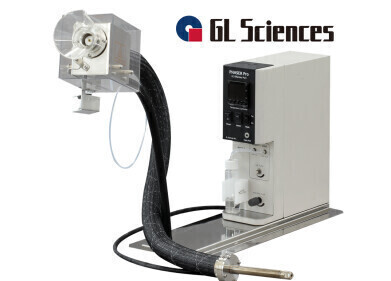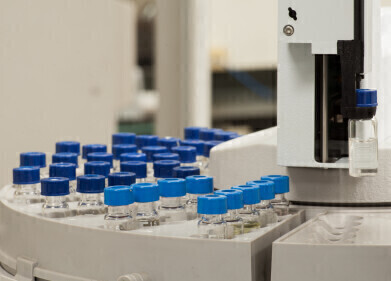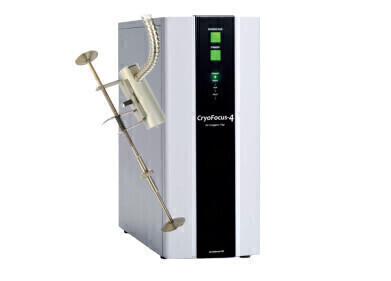GC, MDGC
The Nuts & Bolts of Chromatography Sample Preparation Using the QuEChERS Method
Aug 02 2014
This article gives a basic introduction to the preparation of samples for analysis by chromatography using the QuEChERS method. A wide range of sample types can be analysed, including:
- biological (nucleic acids, proteins)
- biological fluids/tissues (drugs, hormones, neurotransmitters)
- gases
- liquids (or samples converted into liquid form)
- solids
It goes without saying that practically all samples that are going to be analysed by chromatography require a preparation stage. The storage, preservation and transport of the sample from its point of collection to the analytical laboratory should not in any way alter its physical and chemical makeup. Only a small fraction of the collected sample will be used in the analysis, as it may be necessary to confirm the findings later e.g. levels of illicit drugs in a urine sample of an athlete or drug addict.
Finally, the preparation methodology necessary to convert the sample into a form suitable for introduction into the measuring instrument must occur without any inadvertent modification of the material. All of these pre-analysis sample preparation stages have a crucial effect in determining the accuracy and reliability of measurement.
Methodology
After sample preparation, the analytical chemist has a processed sample that that can be introduced directly into the chromatography instrument of which there are many types including gas chromatography, high-performance liquid chromatography with different types of separation mechanisms (liquid–liquid partition, size exclusion, ion exchange), thin-layer chromatography, supercritical fluid chromatography, etc.
QuEChERS Method
It goes without saying that the sample preparation will likely be very different depending on the type of chromatography to be utilized. One modern approach to sample preparation is the QuEChERS method (Quick, Easy, Cheap, Effective, Rugged and Safe).
This approach makes it easy and cost effective for analytical chemists to determine the levels of substances in many types of samples. The PerkinElmer’s Supra-d QuEChERS dispersive method turns sample preparation into an easy two-step process by using the QuEChERS method, which is a very popular sample preparation technique. It is useful in that it eliminates complex liquid extraction methods and extends the range of the material that can be recovered from a sample.
Using QuEChERS, samples are prepared in three simple steps. To reduce costs and speed up sample preparation, a novel dispersive solid phase extraction (dSPE) technique has been developed, which effectively removes a variety of unwanted chemicals from the sample, and is a technique that is far simpler and less expensive than conventional methods. Briefly, samples are first homogenized, then extracted and partitioned with an organic solvent and salt solution, with the extracts finally cleaned using the dSPE technique.
Using the dSPE approach, the quantity and type of sorbents can easily be optimized for different matrix interferences and difficult analytes. The QuEChERS procedure is fast and easy, improving lab productivity and results in fewer analytical errors.
Thus, in the modern age, the nuts and bolts of sample preparation for chromatography has been greatly simplified using new technology and makes the laboratory chemist’s life easier!
For more information, this article, Fully Automated QuEChERS Clean up and LC/MS-QQQ Analysis of Pesticides in Fruits and Vegetables, uses the QuEChERS method and provides a good example of it in practice.
Events
Jan 20 2025 Amsterdam, Netherlands
Feb 03 2025 Dubai, UAE
Feb 05 2025 Guangzhou, China
Mar 01 2025 Boston, MA, USA
Mar 04 2025 Berlin, Germany













